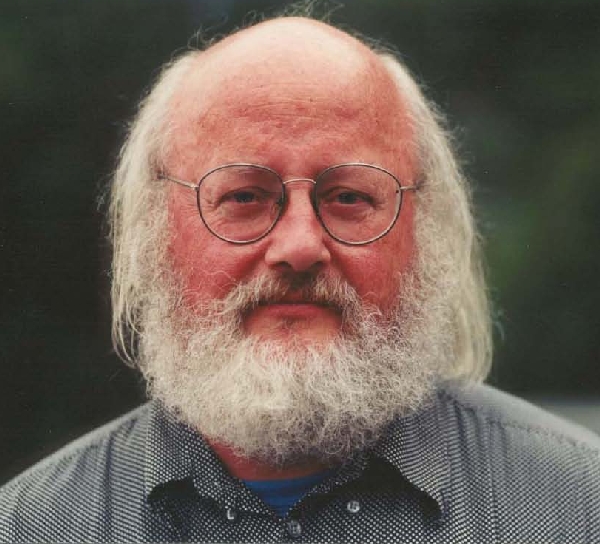|
|
Biography |
|
|
 Prof. em. University of Bern. Born Dec. 6, 1940 in Bern, thesis: vegetation and glacier history, summa cum laude in 1972 Bern University.
Assisting to Swiss Atlas of Plant Distribution, first Swiss research dept. lichenology (chemosystematics and bio-monitoring air pollution). Lectures in plant biodiversity and vegetation ecology, director of the Bern Botanic Garden 1996-2006 and Professor h.c. 2000. Sabbatical stays: Bergen, Norway, Duke University in North Carolina, University of the West Indies in Jamaica and Missouri Botanical Garden in St. Louis.
Emeritus 2006, guest prof. Delft University of Technology, Sabanci University in Istanbul. Moderating ‘Berne Debates’, early blog on plant biotechnology, presently
- ASK-FORCE at PRRI (Public Research and Regulation Initiative) http://pubresreg.org/index.php?option=com_content&task=blogcategory&id=70&Itemid=71,
- FORUM at European Federation of Biotechnology http://www.efb-central.org/index.php/forums/,
- KLAUSBLOG at Black Sea Biotechnology Association, http://www.bsbanet.org/klausblog/.
Numerous committees: Chair European expert committee on plant conservation, Council of Europe, founding member Planta Europa, Swiss Biosafety Committee Biodiversity Section of EFB. Several Swiss and European research projects on gene flow, plant conservation, lichen chemosystematics and monitoring air pollution. Publications on biogeography, vegetation history, vegetation ecology, plant systematics (monography on Bromus), gene flow of crops and their wild relatives and agricultural biodiversity. He also has a special interest in Pythagorean Harmonics science and holistic questions in evolution.
Prof. em. University of Bern. Born Dec. 6, 1940 in Bern, thesis: vegetation and glacier history, summa cum laude in 1972 Bern University.
Assisting to Swiss Atlas of Plant Distribution, first Swiss research dept. lichenology (chemosystematics and bio-monitoring air pollution). Lectures in plant biodiversity and vegetation ecology, director of the Bern Botanic Garden 1996-2006 and Professor h.c. 2000. Sabbatical stays: Bergen, Norway, Duke University in North Carolina, University of the West Indies in Jamaica and Missouri Botanical Garden in St. Louis.
Emeritus 2006, guest prof. Delft University of Technology, Sabanci University in Istanbul. Moderating ‘Berne Debates’, early blog on plant biotechnology, presently
- ASK-FORCE at PRRI (Public Research and Regulation Initiative) http://pubresreg.org/index.php?option=com_content&task=blogcategory&id=70&Itemid=71,
- FORUM at European Federation of Biotechnology http://www.efb-central.org/index.php/forums/,
- KLAUSBLOG at Black Sea Biotechnology Association, http://www.bsbanet.org/klausblog/.
Numerous committees: Chair European expert committee on plant conservation, Council of Europe, founding member Planta Europa, Swiss Biosafety Committee Biodiversity Section of EFB. Several Swiss and European research projects on gene flow, plant conservation, lichen chemosystematics and monitoring air pollution. Publications on biogeography, vegetation history, vegetation ecology, plant systematics (monography on Bromus), gene flow of crops and their wild relatives and agricultural biodiversity. He also has a special interest in Pythagorean Harmonics science and holistic questions in evolution.
|
|
|
|
|
|
|
Abstract |
|
|
|
|
Biodiversity and Biotechnology and its Relation to Sustainability |
|
|
|
|
|
Panel C-2: Sustaining the Environment: Rights and Responsibilities-Environment (Delegates Hall)
The contribution introduces a discursive concept of sustainability with a focus on agriculture. It criticizes some common urban myths about agricultural biotechnology and demonstrates examples of beneficial features of an agriculture including strategies of organic farming combined with modern genetically engineered crops.
We need to revisit the definition of sustainable development which has been established on an international level by the UN Brundtland report on Our Common Future: The definition still holds up 25 years later, if only it would be put into force in all its facettes…
"Sustainable development is development that meets the needs of the present without compromising the ability of future generations to meet their own needs. It contains within it two key concepts: the concept of needs, in particular the essential needs of the world's poor, to which overriding priority should be given; and the idea of limitations imposed by the state of technology and social organization on the environment's ability to meet present and future needs”
It is clear from those few lines that the report is not only asking in a defensive way for conservation, but also for the development and management of sustainable patterns of production and consumption, and – surprise – there is serious, but balanced concern about the potential and limitations of technology.
Organic agriculture may be part of the solution and help in the change of food production systems towards a more sustainable mode, but only if the organic strategists free themselves from unwise technophobic trends linked to biotechnology. Some of the transgenic crops may actually be the ideal cultivars for organic farming, this is supported by hard data. Only with technological innovation, unbiased from urban myths against biotech crops will it be possible to overcome the notoriously low yield in most agro-ecological farming.
It is clearly justified to tear down the artificial barriers between transgenic and non-transgenic crops: Since on the molecular process level it is clear, that naturally mutated and transgenic crops show only minimal differences, if they exist at all. Contrary to the conventional views the genome of genetically engineered crops show less transcriptomic disturbance than conventionally developed cultivars. Consequently, the organic dogma of the “intrinsic integrity of genomes” held up for conventional crops against the modern biotech crops is scientifically proven to be wrong.
Instead of waging war between the two major factions in agricultural strategies, it would be highly advisable to collaborate and develop a truly integrative agriculture.
|
|
|
|
|